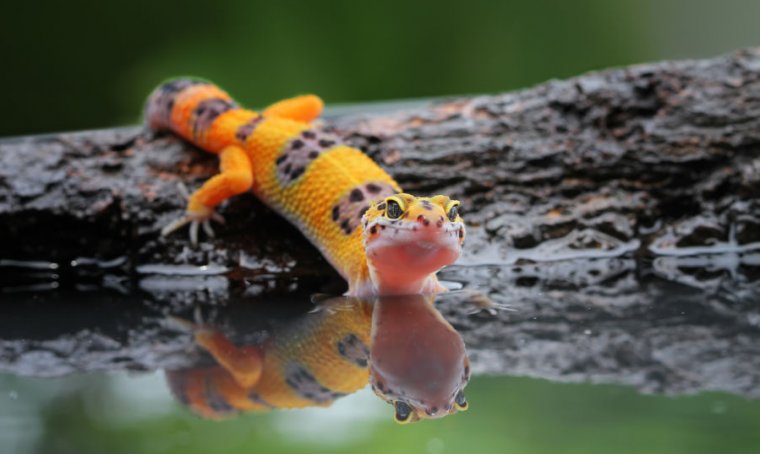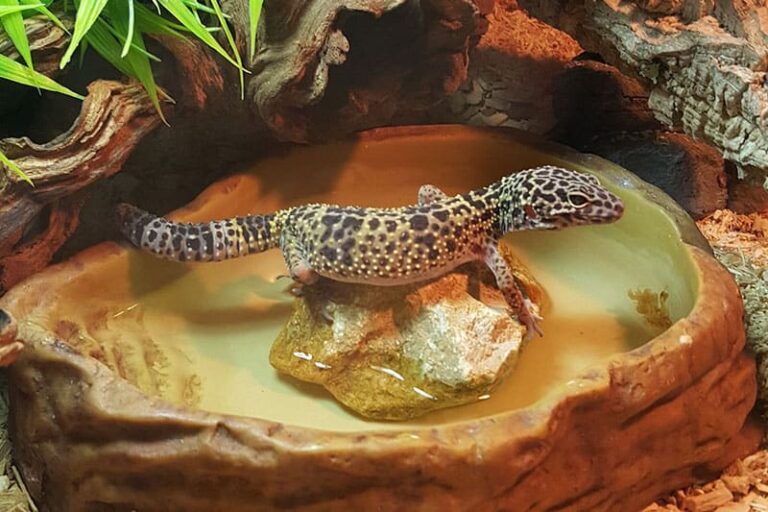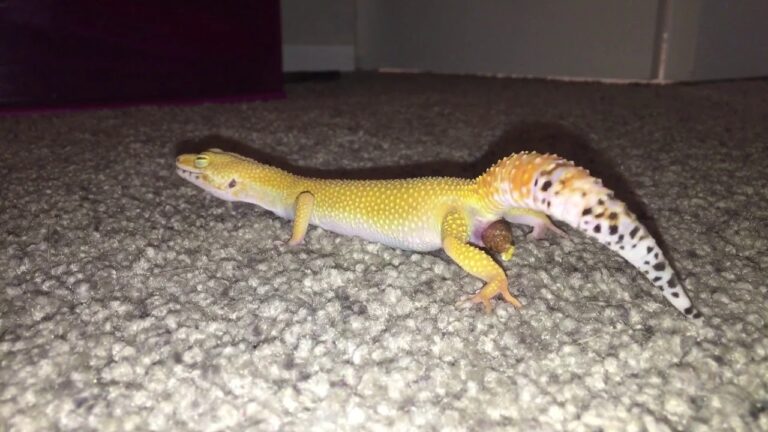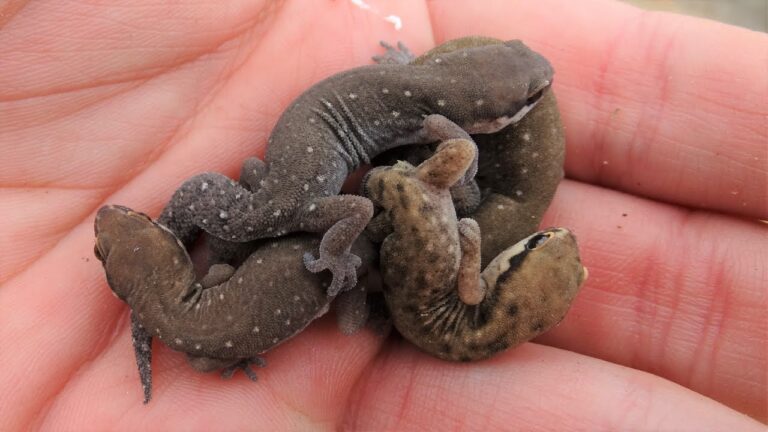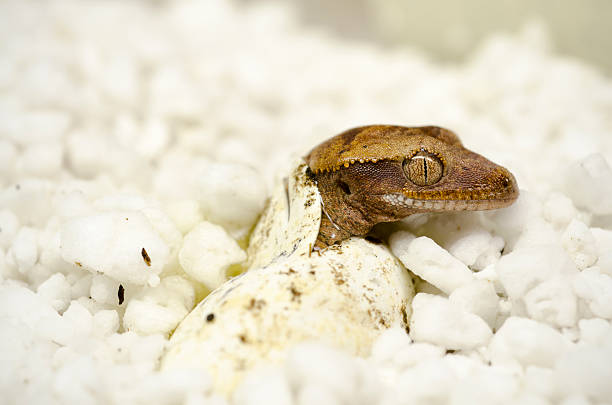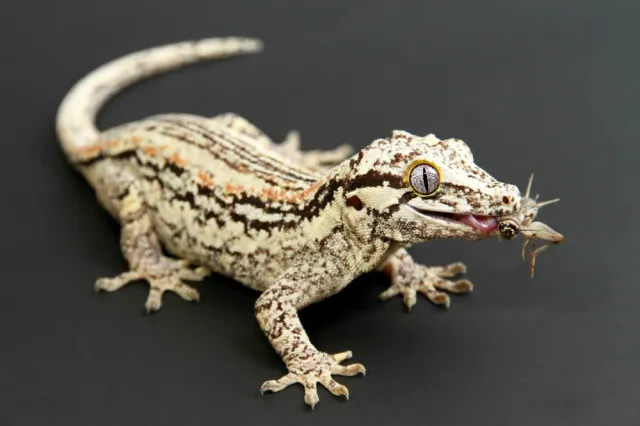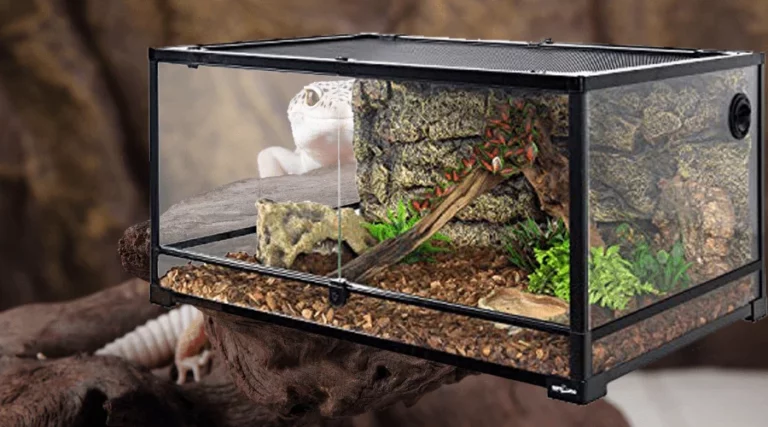Can Geckos Swim Safel: Expert Tips for Gecko Owners
As an avid reptile enthusiast, my journey through the captivating world of geckos has led me to discover their remarkable abilities and behaviors. One question that often piqued my curiosity was, “Can geckos swim?”
The answer is, No, geckos possess an intriguing ability when it comes to water—they don’t swim; they float. It’s a distinctive feature of these reptiles.
However, it’s essential to understand that while they may float, allowing them to swim is a risky proposition. The risk of drowning is high, and being submerged in water can cause significant stress to your gecko, potentially leading to other health issues
In my quest for answers, I embarked on a fascinating exploration of these remarkable creatures, and what I uncovered revealed a surprising dimension to their adaptability.
Join me on this journey as we delve into the aquatic prowess of geckos and unveil the secrets of their swimming abilities.
When Do Geckos Need Water?
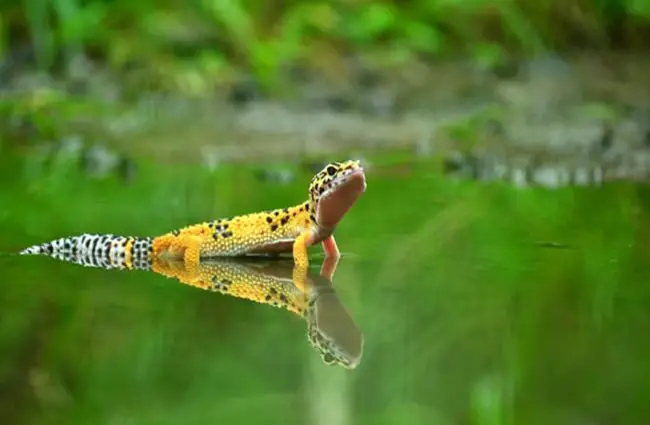
Geckos have a complex relationship with water, characterized by both necessity and aversion. Their native habitat in arid regions necessitates careful water management. While they require water for survival, they tend to avoid wet environments due to their desert-dwelling nature.
To drink water:
They must drink water to maintain their hydration and regulate body temperature. However, their primary source of moisture often comes from the insects they consume. They resort to drinking water when the insects lack sufficient moisture.
Also, It’s crucial to ensure a consistent supply of fresh water in their dish, as substrate may find its way into the dish and dry it out, leaving your gecko thirsty.
Assisting with Shedding
Shedding can be a challenging process for them. They may struggle with it due to insufficient scratching or stubborn old skin. In such cases, they may seek to soak themselves in water. This moisture acts as a lubricant, facilitating the shedding process by aiding the separation of old and new skin.
While some owners opt to provide shallow baths for shedding assistance, it’s generally best to allow geckos to manage their own shedding. Intervening with baths can cause unnecessary stress unless their appearance significantly hampers their activities, such as substrate clumps obstructing their eyes or movement.
Moisture Regulation
Geckos exhibit intriguing behavior when it comes to moisture regulation and thermoregulation. They may drink water or briefly soak themselves before retreating to their hiding spots to adjust their body temperature. Although there’s no scientific consensus on this behavior, it appears to be a supplement to thermoregulation, particularly when they need to cool down.
To maximize the benefits of this behavior, it’s advisable to position the water dish in the cooler areas of the enclosure. This ensures that the moisture on their bodies aids in their thermoregulation process, as their hiding spots are typically located in cooler regions.
Furthermore, placing the water dish in warmer areas would require them to traverse longer distances, causing the moisture on their bodies to warm up and making thermoregulation more demanding.
Hibernation or Brumation:
If you keep your pet at lower temperatures during a hibernation or brumation period, it may require less water. Consult with a reptile veterinarian or experienced breeder for guidance on temperature and hydration during these periods.
Bathing:
Some gecko owners provide occasional baths to their geckos. You can fill a shallow container with lukewarm water and allow your gecko to soak in it for a few minutes. This can help with hydration and may assist with shedding.
They are good at controlling their body temperature. Without a humid hiding place, they might drink more water or take quick dips in their water bowl to adjust their temperature.
To help them, put their water bowl in the cooler part of their home, which should be around 70-77°F. The warmer area should be 85-87°F, with a sunbathing spot around 90-95°F.
Even though they are usually active at dawn or night, some gecko owners have seen them sunbathing from time to time. Whether they need a sunbathing spot is debated, but having a special light (UVA/UVB) can make them healthier.
What are The Dangers Of Letting Gecko Swim?
1. Drowning Risk
Unlike aquatic creatures, aren’t built for swimming. When they encounter water, they tend to float on it. However, this doesn’t mean it’s effortless for them. Just like humans, they need to exert effort to stay afloat. They can’t stay on the water’s surface for extended periods and may tire out, eventually sinking.
In addition, Some owners have even shared alarming stories of their geckos falling into their water dishes and struggling to stay afloat, sometimes ending up facing downwards. This situation is highly dangerous, as they are not equipped to handle such circumstances, leading to panic, disorientation, and ultimately drowning.
2. Extreme Temperature Challenges
They display curious behavior when it comes to extreme temperatures, whether cold or hot. If they find themselves in water for too long, they may only move to warmer areas of their enclosure when their bodies have already become too cold.
Addionally, occasional exposure to such conditions is generally not a cause for concern. However, if this happens frequently, it can weaken their immune system and even stunt their growth.
3. Stress and Tail Loss
Exposing geckos to excessive water is a surefire way to stress them out, as they strongly dislike it. Severe stress can lead to their tails dropping off, a concerning condition. Additionally, stress can cause geckos to refuse food and hide constantly.
When they associate water with stress, they may also become reluctant to drink water on their own. Therefore, it’s essential to avoid actions that make them link water to stress, such as excessive spraying or unnecessary bathing.
4. Respiratory Health Risks
They aren’t anatomically equipped for swimming, and their organs aren’t designed for aquatic activities. Constant exposure to varying temperatures, like humans, can weaken their bodies and make them susceptible to illness. While it might be amusing to imagine a gecko with a tissue, their lungs can only handle so much exposure to extreme temperatures before becoming compromised.
Respiratory problems in geckos are serious and can significantly shorten their lifespan. If you notice any signs of respiratory distress, prompt veterinary attention is crucial.
Tips and Strategies
Feeling alarmed? Don’t worry; there are effective ways to prevent these potential issues. Consider the following tips and strategies:
Choose the Right Water Dish: Opt for a shallow and wide water dish for your gecko. You can even select one with ridges to give your gecko something to grip onto while drinking.
Rock in the Dish: If you keep live food in the enclosure, place a small rock in the center of the water dish. This gives crickets and other insects a platform to climb onto. Preventing insects from drowning in the water helps keep it clean and uncontaminated.
Maintain Fresh Water: Regularly replace the water in your gecko’s dish to ensure it stays clean and free from contaminants.
Moderate Misting: Avoid excessive misting of your pet . Instead, focus on misting the enclosure as a whole. Directly misting your gecko should be done sparingly, perhaps once a week.
Bathing Only When Necessary: Reserve baths for situations where they are genuinely needed, such as when your pet is struggling with shedding or hasn’t defecated. Overbathing can cause stress, so it’s essential to assess the situation carefully.
What water is safe for geckos?
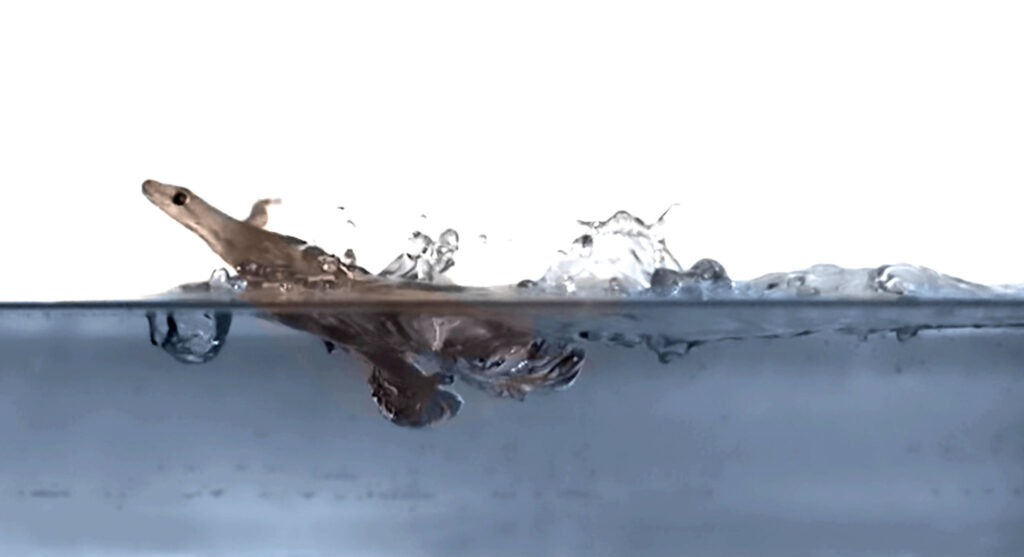
- Dechlorinated Tap Water: Let tap water sit for 24 hours to remove chlorine or use a reptile-safe water conditioner.
- Bottled Spring Water: Ensure it’s plain spring water without added minerals or flavors.
- Well Water: Check for contaminants and quality,doesn’t contain high levels of minerals or pollutants.
- Filtered Tap Water: Use if it removes chlorine and impurities.
- Avoid Distilled Water: It lacks essential minerals.
FAQs
Can I force my gecko to swim?
No, you should never force a gecko to swim, as they are not natural swimmers and it can be harmful to them.
Do geckos like to soak?
No, Geckos generally do not enjoy soaking, and it’s not a typical behavior for them.
Can you get geckos wet?
Yes, While you can provide humidity and occasional shallow water for specific needs, it’s best to avoid getting geckos excessively wet.
Can baby geckos drown?
Yes, baby geckos are even more vulnerable to drowning due to their small size and inexperience in handling water.
What should I do if my gecko falls in the water?
Remove them from the water immediately and ensure they are dry to prevent stress and potential health issues.
How long can geckos breathe underwater?
Geckos cannot breathe underwater; they do not possess the adaptations for aquatic respiration.
Can geckos hold their breath underwater?
No, geckos cannot hold their breath underwater. They are not equipped for prolonged submersion.
Are geckos good swimmers?
No, Geckos are not natural swimmers and are not proficient in water.
Can I put my gecko in water?
Yes, Only in specific situations, such as assisting with shedding or addressing certain health issues. Otherwise, it’s best to avoid placing geckos in water.
Final words:
In conclusion, from my perspective, it’s clear that geckos are not built for swimming. While they can manage brief encounters with water, they are far from natural swimmers. Their physiology and instincts are more attuned to terrestrial life, and extended exposure to water can spell trouble, leading to issues like drowning, temperature-related stress, and respiratory problems.
Therefore, when caring for geckos as pets, I believe it’s crucial to exercise caution and provide safe water sources, always keeping their well-being in mind to prevent any potential harm associated with water exposure.

